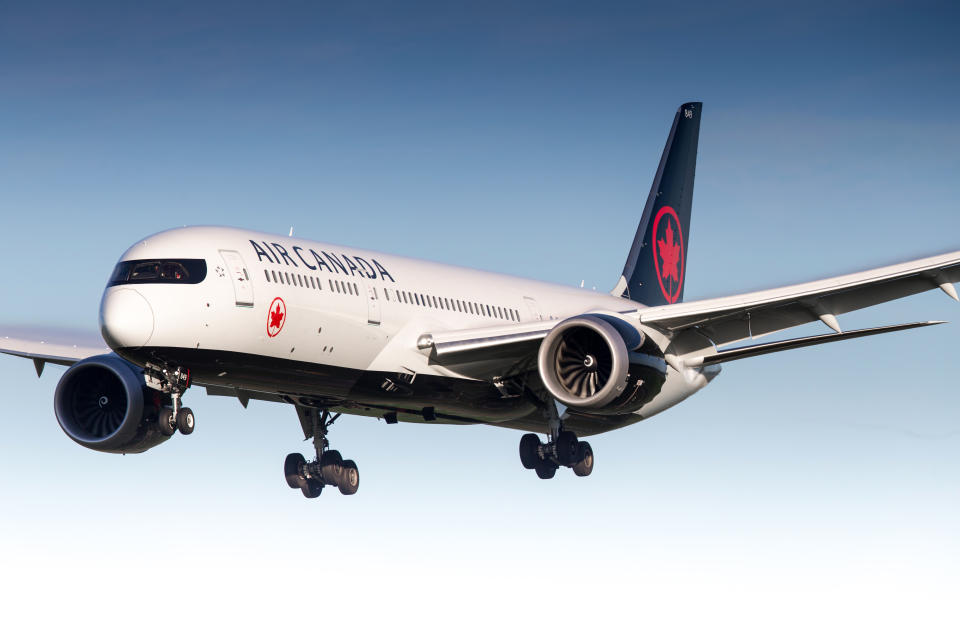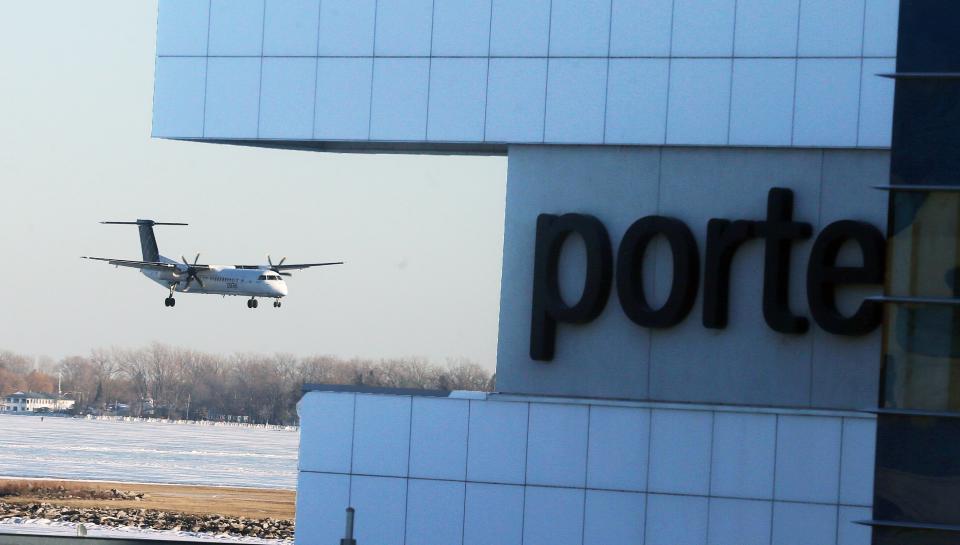How Canada's airlines are preventing coronavirus spread in cabins
Canada's major airlines including Air Canada, WestJet, Air Transat and Porter Airlines have revealed what extra measures they are taking to prevent coronavirus spreading on their flights.
With more than 100,000 cases globally, and flights cancelled to multiple destinations around the world, the travel industry is being hit hard by COVID-19.
While the risk of contracting the disease in Canada “remains low,” the World Health Organization officially declared COVID-19 a pandemic on Mar. 11 after the death toll around the world grew to over 4,200.
Before the outbreak, Yahoo Canada spoke to three flight attendants who revealed where the dirtiest part of the plane is and how often the aircrafts are sanitized.
In light of the COVID-19 outbreak, here is a breakdown of what each Canadian airline is doing to keep its travellers safe.
Air Canada

Calin Rovinescu, President and CEO of Air Canada, said they will remain “nimble and respond quickly and effectively to developments around the world.”
He added: “Like all of you, we’ve been monitoring the evolving global impact of the novel coronavirus (COVID‑19) and are in constant dialogue with Canadian and international health authorities. At Air Canada our core value is Safety First, Always ‑ for our customers and for our employees.”
Air Canada’s safety procedures:
At the airport: To promote a more hygienic airport experience, they have placed hand sanitizers in key areas such as check‑in counters, gates and lounges. They also have constant reminders about the importance of hand washing.
Before a flight: If a customer who appears unwell attempts to check‑in or board an aircraft, Air Canada staff will assess their health. This can include consultation with their own Medical Desk and/or a third‑party health provider. If they are unfit to travel, they will not be permitted to board.
In the air: Their aircraft are equipped with High Efficiency Particulate Air (HEPA) filters which effectively capture 99.9% of particulate from recirculated air in the aircraft cabin. This includes microbial organisms such as bacteria and viruses. These filters are similar to those used in hospital rooms and like those in hospital rooms, they refresh the cabin air every two to three minutes.
After every flight: Coronaviruses are easily eliminated by routine surface cleaning and sanitization. Air Canada uses cleaning products, including hospital‑grade disinfectants which have a wide-spectrum microbial activity and are proven effective against human coronavirus.
Air Canada has suspended flights to impacted areas such as the People’s Republic of China, Hong Kong, South Korea, and Italy. They have introduced a free one‑time change on existing bookings, and they are waiving change fees on new bookings.
WestJet

Ed Sims, President and CEO of WestJet, said their team undergo comprehensive training for these scenarios as part of their overall emergency response.
He said: “We already disinfect and sanitize our aircraft using industry-approved products and have also introduced hospital-grade Clorox wipes and spray to our cleaning processes. These new products are used to clean the galleys, lavatories, tray tables, seat armrests and headrests, seatbelt buckles, the power supply unit panel, overhead bin door latches and lavatory door handles.
“In the air, our aircraft are equipped with state-of-the-art HEPA filters which are similar to those used in hospitals. These filters achieve a viral and bacterial removal efficiency of greater than 99.99 per cent. These aircraft also introduce fresh air into the cabin every two to three minutes.”
The airline has also introduced a flexible change policy giving travellers who booked between March 3, 2020 and March 31, 2020 the ability to change their flight without any fees.
Air Transat

Jean-François Lemay, President-General Manager of Air Transat, said they are “scrupulously” applying their infectious diseases protocol, and that they are closely monitoring the situation for customers’ “peace of mind.”
The air flow within cabins is being changed 20 times an hour using the HEPA filters, which Lemay says has an efficiency level of 99.995% to eliminate very small particles, such as bacteria and viruses.
The airline has also introduced a flexible booking policy on new bookings made by March 31, 2020, on flights to all their destinations and South packages. This means travellers can change travel dates, hotel or destinations - or all three- for free up to 24 hours before the departure time.
Air Transat is also waiving the change fees on existing cruise package bookings.
Porter Airlines

Michael Deluce, President and CEO of Porter Airlines, said: “You’ve placed your trust in us to get you where you need to go, and we’re taking necessary steps to enhance your health and safety while travelling during this uncertain time.”
To ease any travellers’ concerns, he said Porter Airlines follows World Health Organization standards for the cleaning and sanitization of its aircraft.
He added: “All of our aircraft go through standardized grooming procedures that exceed Public Health Agency of Canada (PHAC) guidelines. As of this month, we’ve taken additional precautionary measures and introduced the use of hospital grade, broad spectrum disinfectant to sanitize all areas throughout the aircraft. “
The airline has introduced hygiene and sterilization kits on board its flights for crew to use if there is concern that a passenger may have COVID-19 symptoms. Their filter system is the same HEPA device used on board its fellow Canadian airlines.
For travellers, they have a flexible change policy on all fares.

